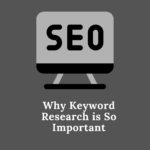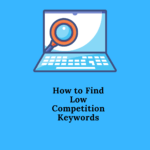There are two main ways to get your website seen by potential customers: Organic SEO and Google Adwords. Both of these strategies have their pros and cons. It can be difficult to decide which one is the best for you. In this article, we will compare Organic SEO vs Google Adwords to help you make the decision that is right for your business.
What is Organic SEO?

Organic SEO is a specific type of SEO that focuses on improving the rankings of your website in organic (unpaid) search results. Organic SEO consists of techniques to increase the number and quality of visitors to your site through “free” or “organic” search engine listings.
SEO, also known as Search Engine Optimization will help you rank higher in Google and other major search engines like Yahoo! and Bing. It involves optimizing your site for better marketing performance so it can be found more easily by people who are looking for products or services like yours on Google.
There are two main types of SEO: organic and paid.
Organic SEO is the unpaid type. This means you don’t have to pay Google or any other search engine for better rankings. Paid SEO refers to services that charge money in order to improve your website’s visibility in search engines.
So how do you go about optimizing your website for organic search? There are a number of ways. Some of the most important include creating high-quality content, improving site architecture. Others are keyword research, and earning backlinks from reputable websites.
If you’re looking for an edge over your competitors, organic SEO is definitely the way to go. It’s a long-term investment that will pay off big in the long run. And with the right tools and techniques, it’s not as difficult or time-consuming as you might think. So get started today and see the results for yourself!
How does Organic SEO work?
The first step in organic SEO is to create high-quality content that meets your target audience’s needs and provides them with value. This can be done by writing articles, blog posts, or creating an e-book. You can also use other forms of media like video tutorials on YouTube or podcasts for those who like listening instead of reading text.
Next up is keyword research which will ensure that people are able to find your website when they search for keywords related to what you offer using any major search engine (Google, Yahoo! Bing). If no one knows about your site then there aren’t going to be many visitors coming through so this part should not be overlooked as it could make all the difference between success and failure online!
Once you have created valuable content and targeted the right keywords, it’s time to start earning backlinks from reputable websites. This is done by reaching out to other bloggers and website owners in your niche and offering them something of value. Such as a guest post or giveaway in exchange for a link back to your site.
If you can do all of these things then you will be well on your way to improving your website’s organic search engine rankings!
What are the benefits of Organic SEO?
There are a number of benefits to organic SEO, including:
- Increased website traffic – When you rank higher in search engine results pages (SERPs). You will get more visitors coming to your site. This is because people generally trust the first few results that show up on a page and are more likely to click on them than those that appear further down the list.
- Higher ROI – Unlike paid advertising methods like Google Adwords. Organic SEO is a long-term investment that can yield a high return on your investment.
- Increased brand awareness – As your website’s visibility grows, so does your brand’s exposure. This can result in more customers discovering who you are and what you offer, which can lead to increased sales!
- Better user experience – Google rewards websites with better user experiences. So if you want your site to rank well in search results pages then this is something that needs consideration from day one of development or redesign work being done on it.
What are the disadvantages of Organic SEO?
There are a few disadvantages associated with organic SEO:
- Time-consuming and requires patience – There’s no way around this one. If you want good results then there will be an investment required in terms of time spent. Things like content creation or link-building activities before seeing any potential gains made by these efforts. This might appeal to some people who have limited budgets at their disposal but don’t want to spend money on paid advertising.
- Can be expensive – In order to achieve good rankings. You may need to employ the services of an SEO specialist or agency which can be costly. However, there are many affordable options available so it’s important to do your research before making any decisions.
So, what’s the verdict?
Organic SEO is definitely a worthwhile investment for any business looking to improve their website’s visibility and attract more customers through search engines. It takes time and patience to see results. However, if done correctly can lead to increased traffic, brand awareness, and better user experiences that will help your site rank higher in SERPs. Paid advertising methods like Google Adwords should also be considered as they can get quick results but may not always be cost-effective long term.
What is Google Adwords?

Google Adwords is a form of paid advertising. It allows businesses to place ads on Google’s search engine results pages (SERPs) and millions of other websites across the web. When someone searches for keywords related to your business. Your ad will show up as one of the top results, helping you to attract more customers quickly and easily.
What are the benefits of using Google Adwords?
There are a number of benefits to using Google Adwords, including:
- Quick and easy setup – With just a few clicks. You can create an ad campaign and start targeting people who are interested in what you have to offer.
- Flexible budgeting – You can control how much you spend on each ad campaign. This means you can stay within your budget without having to worry about overspending.
- Reach a large audience – With Google Adwords, your ads will be shown on millions of websites across the web. Therefore reaching a large number of potential customers.
What are the disadvantages of using Google Adwords?
There are a few disadvantages associated with using Google Adwords:
- Can be expensive – Paid advertising can be costly and if not used correctly. It’s easy to end up spending more money than you intended. It’s important to do your research before starting an ad campaign and set realistic goals so that you don’t waste any valuable resources.
- Requires ongoing maintenance – In order for your ad campaigns to be successful. They need to be constantly monitored and tweaked as needed. This can be time-consuming if you don’t have the necessary resources in place.
For further information read our article on The Advantages and Disadvantages of PPC (Pay Per Click)
How can I figure out which strategy is right for me and my business?
The best way to figure out which strategy is right for you and your business is to do some research and ask around for advice. Talk to other businesses who have used organic SEO or Google Adwords and get their insights on what worked well for them and what didn’t. Once you’ve gathered as much information as possible. It will be easier to make an informed decision about which route to take.
So, there are the pros and cons of both organic SEO and Google Adwords – now it’s up to you decide which one is right for your business. Do some research, talk to experts, and weigh up the options before making a final decision. Whichever route you choose, just remember that it takes time for results to show so don’t expect overnight success!
Conclusion: Organic SEO vs Google Adwords
SEO is a long-term strategy that takes time and patience to see results, but it can be worth the wait. Google Adwords offers quick and easy results but may not always be cost effective in the long run. The best way to figure out which route suits your business better is by doing some research into both options before making an informed decision about what’s right for you!




